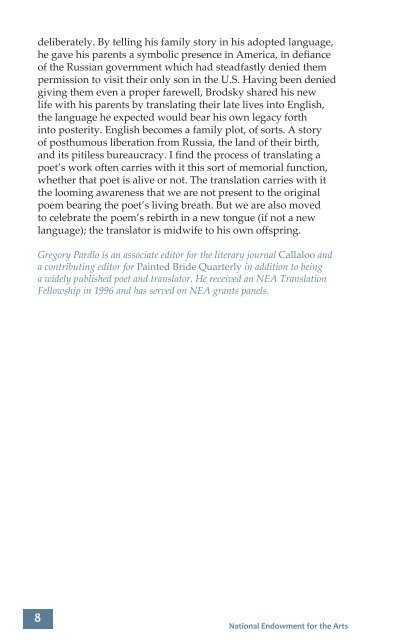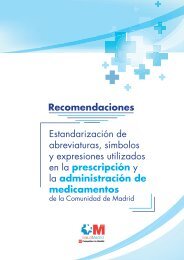lKd7nD
lKd7nD
lKd7nD
Create successful ePaper yourself
Turn your PDF publications into a flip-book with our unique Google optimized e-Paper software.
deliberately. By telling his family story in his adopted language,<br />
he gave his parents a symbolic presence in America, in defiance<br />
of the Russian government which had steadfastly denied them<br />
permission to visit their only son in the U.S. Having been denied<br />
giving them even a proper farewell, Brodsky shared his new<br />
life with his parents by translating their late lives into English,<br />
the language he expected would bear his own legacy forth<br />
into posterity. English becomes a family plot, of sorts. A story<br />
of posthumous liberation from Russia, the land of their birth,<br />
and its pitiless bureaucracy. I find the process of translating a<br />
poet’s work often carries with it this sort of memorial function,<br />
whether that poet is alive or not. The translation carries with it<br />
the looming awareness that we are not present to the original<br />
poem bearing the poet’s living breath. But we are also moved<br />
to celebrate the poem’s rebirth in a new tongue (if not a new<br />
language); the translator is midwife to his own offspring.<br />
Gregory Pardlo is an associate editor for the literary journal Callaloo and<br />
a contributing editor for Painted Bride Quarterly in addition to being<br />
a widely published poet and translator. He received an NEA Translation<br />
Fellowship in 1996 and has served on NEA grants panels.<br />
8<br />
National Endowment for the Arts



